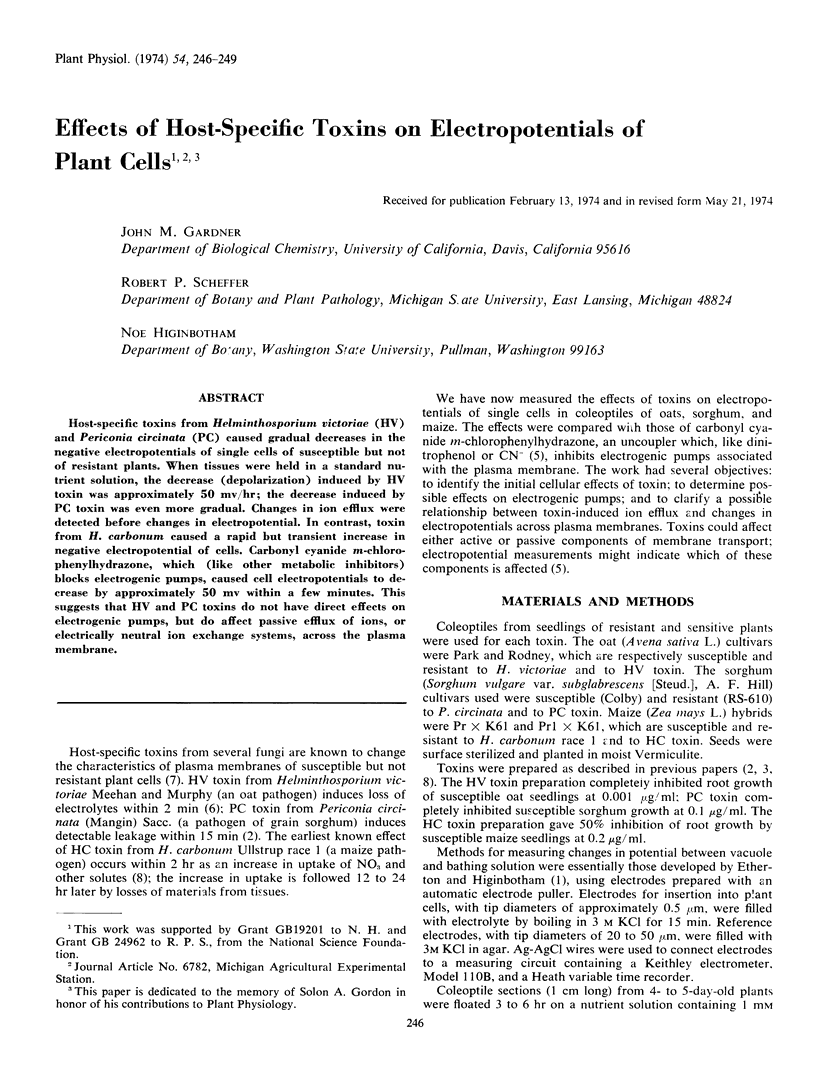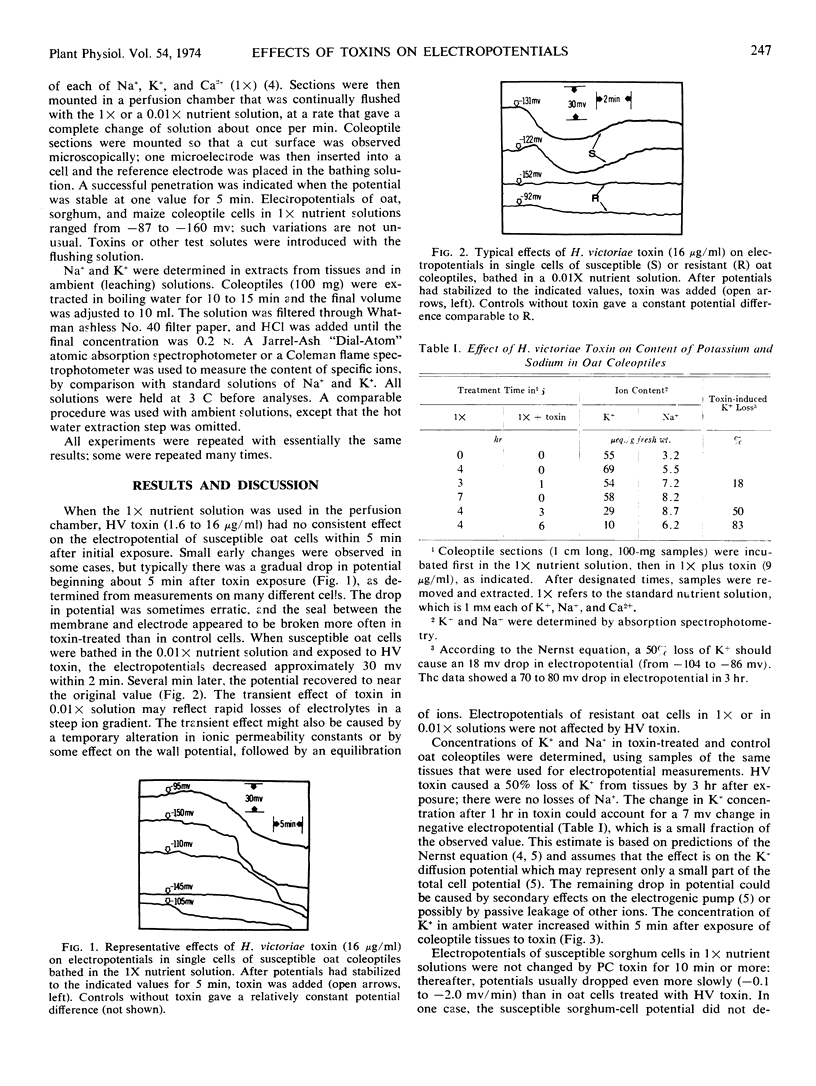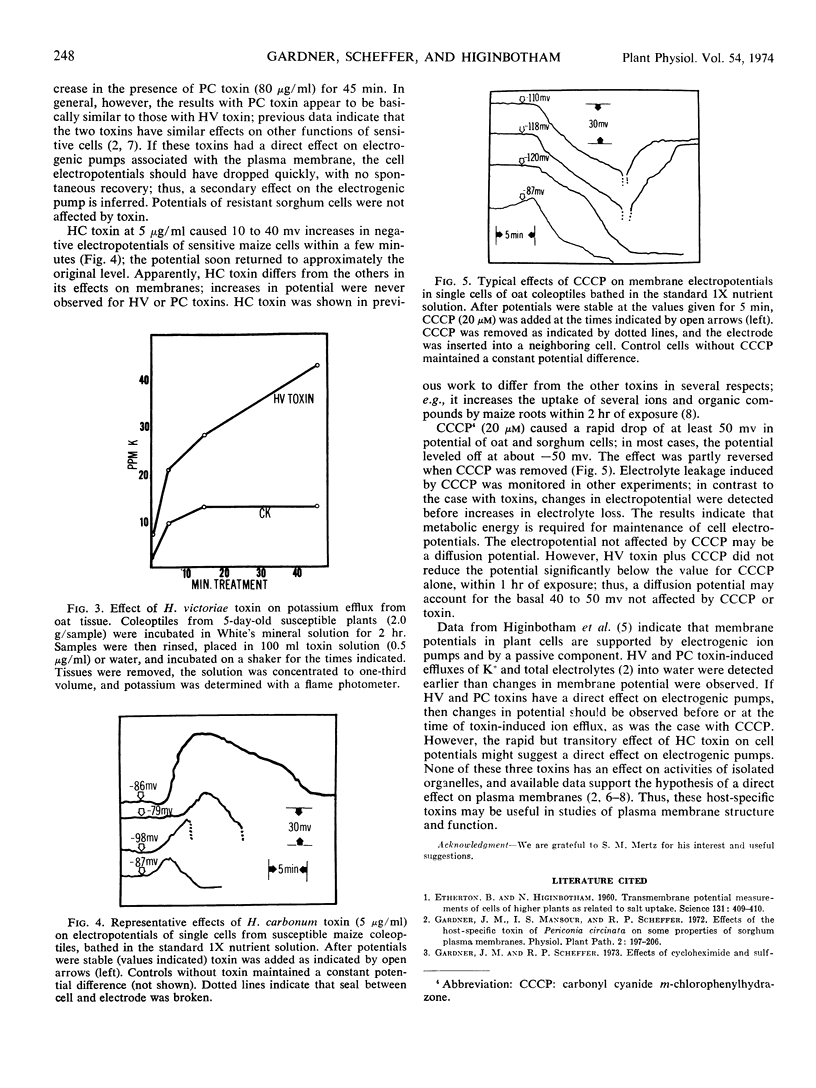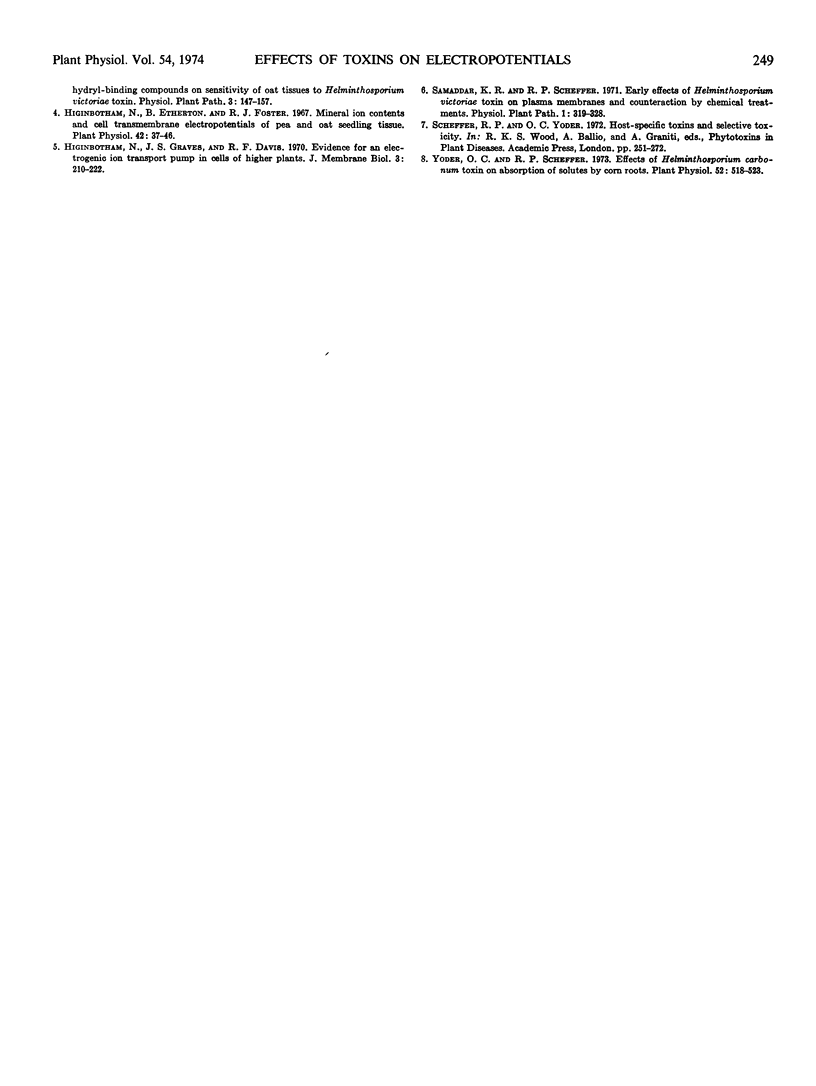Abstract
Host-specific toxins from Helminthosporium victoriae (HV) and Periconia circinata (PC) caused gradual decreases in the negative electropotentials of single cells of susceptible but not of resistant plants. When tissues were held in a standard nutrient solution, the decrease (depolarization) induced by HV toxin was approximately 50 mv/hr; the decrease induced by PC toxin was even more gradual. Changes in ion efflux were detected before changes in electropotential. In contrast, toxin from H. carbonum caused a rapid but transient increase in negative electropotential of cells. Carbonyl cyanide m-chlorophenylhydrazone, which (like other metabolic inhibitors) blocks electrogenic pumps, caused cell electropotentials to decrease by approximately 50 mv within a few minutes. This suggests that HV and PC toxins do not have direct effects on electrogenic pumps, but do affect passive efflux of ions, or electrically neutral ion exchange systems, across the plasma membrane.
Full text
PDF



Selected References
These references are in PubMed. This may not be the complete list of references from this article.
- ETHERTON B., HIGINBOTHAM N. Transmembrane potential measurements of cells of higher plants as related to salt uptake. Science. 1960 Feb 12;131(3398):409–410. doi: 10.1126/science.131.3398.409. [DOI] [PubMed] [Google Scholar]
- Higinbotham N., Etherton B., Foster R. J. Mineral ion contents and cell transmembrane electropotentials of pea and oat seedling tissue. Plant Physiol. 1967 Jan;42(1):37–46. doi: 10.1104/pp.42.1.37. [DOI] [PMC free article] [PubMed] [Google Scholar]
- Yoder O. C., Scheffer R. P. Effects of Helminthosporium carbonum Toxin on Absorption of Solutes by Corn Roots. Plant Physiol. 1973 Dec;52(6):518–523. doi: 10.1104/pp.52.6.518. [DOI] [PMC free article] [PubMed] [Google Scholar]



